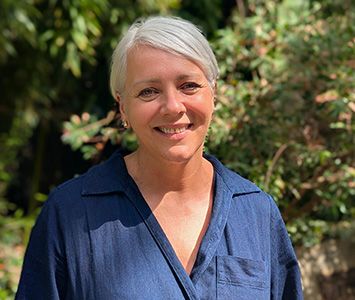Before I talk about this, may I ask you to spend five minutes watching ‘down the pub’ with Mark and Jordan, two people with lived experience and strong opinions. They tell it better than I ever could.
Done that? Thank you.
Of course, Mark and Jordan could only cover a few key topics in that video. Which is why I’d also like to share the Dimensions Dictionary with you. It explains the words we want to avoid, the words we choose instead, and why.
Whether you’re writing daily notes, applying for a job with us, wondering if we’re the sort of organisation you’d want to support your loved one or involved in any way in social care, you’re likely to find something to chew on in the Dimensions Dictionary. Feel free to drop us a line with your suggested additions.
It’s not being woke. It’s showing respect. Which brings me to this website…
Dimensions’ comms team tell me that more people search Google for ‘challenging behaviour’ than for ‘behaviours of distress.’ They say we’d get more pageviews if we reduce people to an acronym by using the term PMLD rather than talking about their gifts, abilities and needs. Or if we talk about respite rather than short breaks. If we describe people as vulnerable. And so on.

Perhaps, to be understood by most people we have to speak the same language that most people speak.
I get it.
Based on that logic, society would never have got to ‘person with a learning disability.’ We’d be stuck with language that is utterly dehumanising – with words that I can’t bring myself to type here.
Fortunately, language evolves all the time. For example in our video, filmed a year or two back, Jordan suggests the phrase ‘person who doesn’t use words to communicate’ in preference to ‘non-verbal’ – but now we prefer ‘person who communicates without words.’ It emphasises, positively, that the person most certainly does communicate – our challenge is to understand and respond.
We have made a few concessions to commonly used language.
For example, on these pages you’ll find reference to people with complex support needs (I drew the line at complex needs!) I don’t really like this because all labels reduce people. They steer our attention to what’s on the label instead of recognising all the glorious aspects of that person’s humanity.
We use the phrase ‘complex support needs’ because it serves a purpose – but you’ll see that we carefully explain what we mean by that phrase in the subsequent text and talk explicitly about a person’s gift and abilities too. I hope that in doing so we manage to put the label to one side and see more of the person.
Because that’s why we’re all here. Isn’t it?
